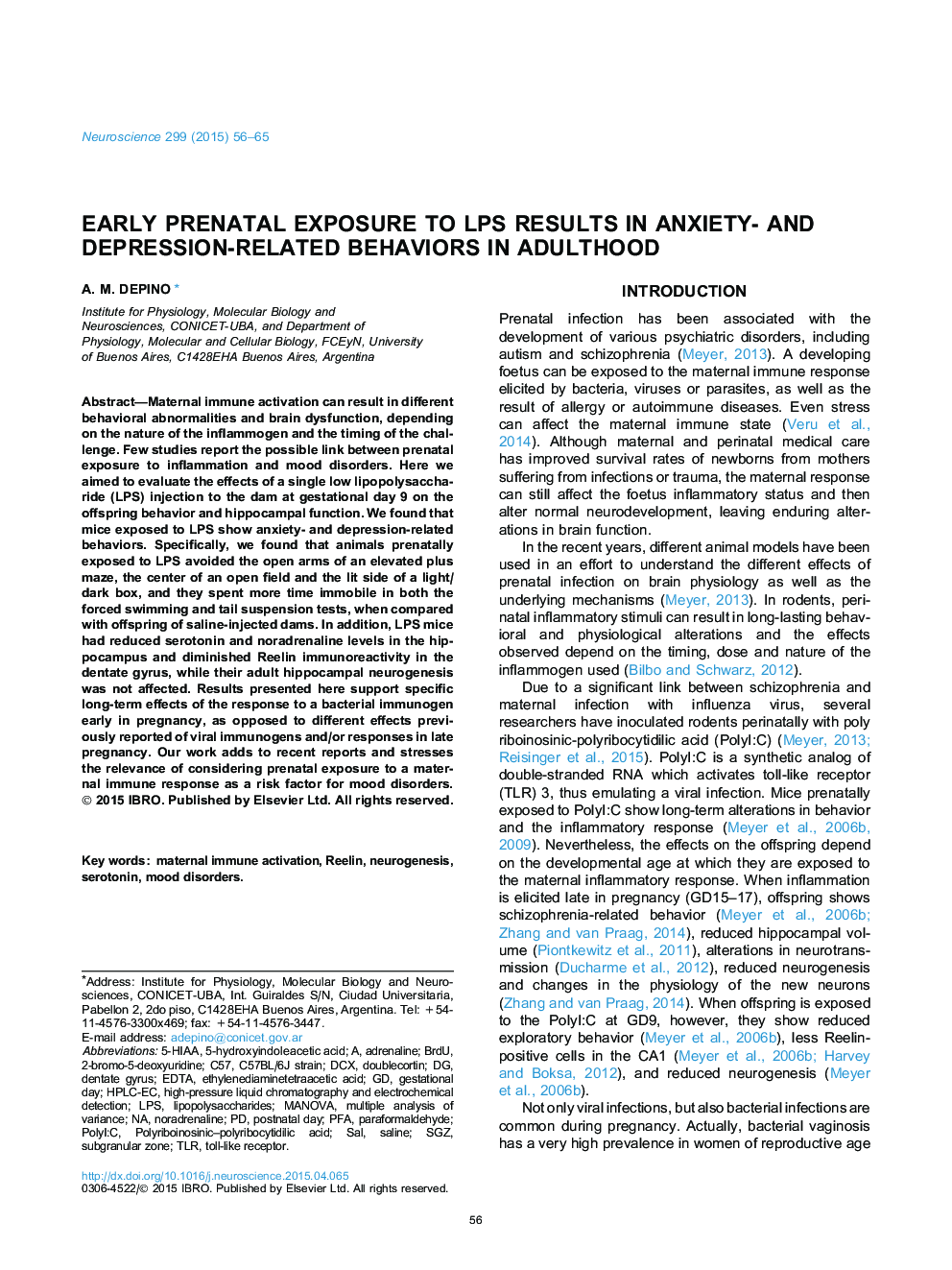| کد مقاله | کد نشریه | سال انتشار | مقاله انگلیسی | نسخه تمام متن |
|---|---|---|---|---|
| 4337475 | 1614777 | 2015 | 10 صفحه PDF | دانلود رایگان |
• Exposure to LPS at GD9.5 results in anxiety- and depression-related behaviors in adult offspring.
• Hippocampal serotonin levels were reduced in animals prenatally exposed to LPS.
• Offspring exposed to LPS showed less Reelin‐positive cells in the adult dentate gyrus.
• Adult hippocampal neurogenesis was not affected by exposure to LPS early during development.
Maternal immune activation can result in different behavioral abnormalities and brain dysfunction, depending on the nature of the inflammogen and the timing of the challenge. Few studies report the possible link between prenatal exposure to inflammation and mood disorders. Here we aimed to evaluate the effects of a single low lipopolysaccharide (LPS) injection to the dam at gestational day 9 on the offspring behavior and hippocampal function. We found that mice exposed to LPS show anxiety- and depression-related behaviors. Specifically, we found that animals prenatally exposed to LPS avoided the open arms of an elevated plus maze, the center of an open field and the lit side of a light/dark box, and they spent more time immobile in both the forced swimming and tail suspension tests, when compared with offspring of saline-injected dams. In addition, LPS mice had reduced serotonin and noradrenaline levels in the hippocampus and diminished Reelin immunoreactivity in the dentate gyrus, while their adult hippocampal neurogenesis was not affected. Results presented here support specific long-term effects of the response to a bacterial immunogen early in pregnancy, as opposed to different effects previously reported of viral immunogens and/or responses in late pregnancy. Our work adds to recent reports and stresses the relevance of considering prenatal exposure to a maternal immune response as a risk factor for mood disorders.
Figure optionsDownload high-quality image (169 K)Download as PowerPoint slide
Journal: Neuroscience - Volume 299, 23 July 2015, Pages 56–65
